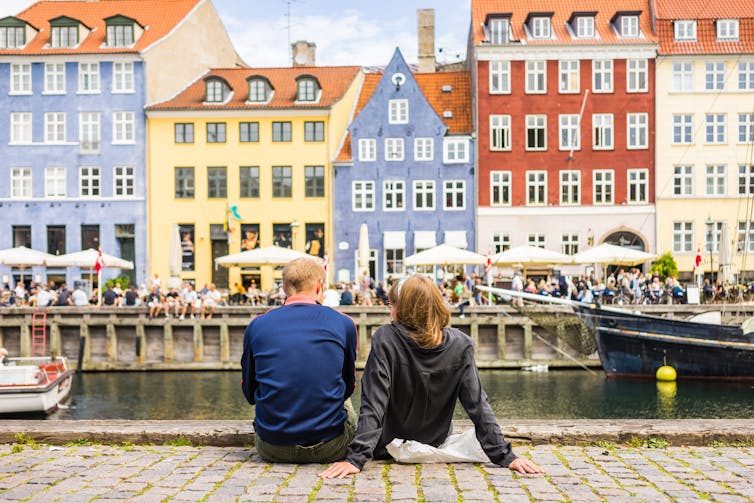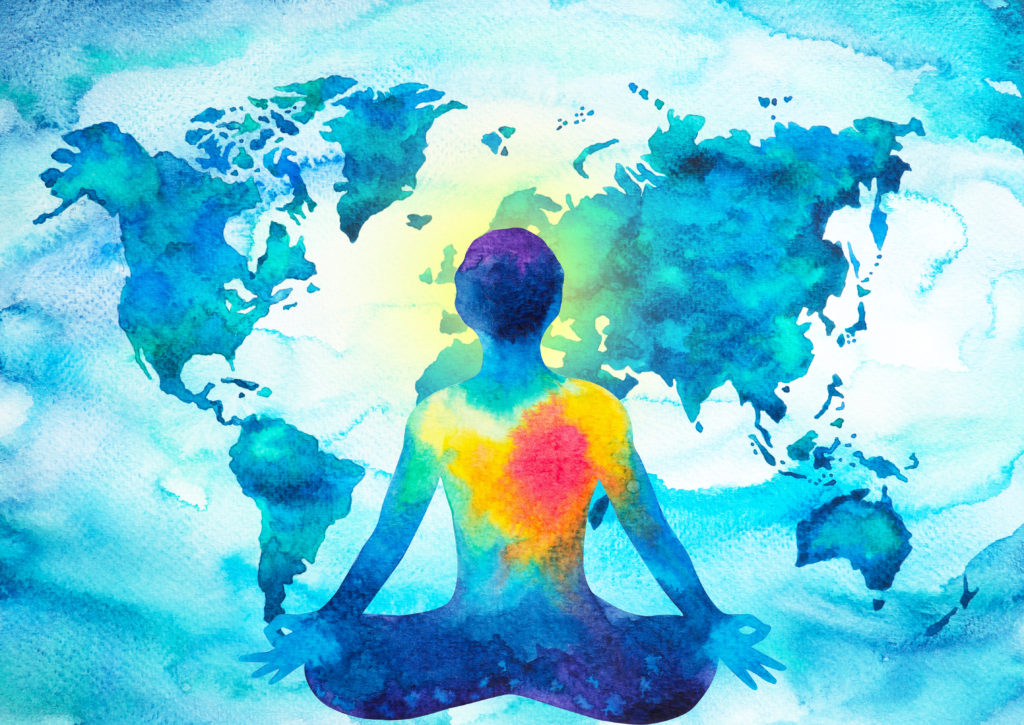The Nordic countries are consistently ranked as the happiest countries in the world according to World Happiness Reports published since 2012. Because of this, other countries often look to them for guidance when it comes to nurturing the well-being of their people.
However, in our recent study, we found that people living in parts of southern Europe had higher mental well-being than those living in the north.
We used a scale which asks to what extent a person has felt good and functioned well over the past two weeks. “Feeling good” can mean feeling relaxed, optimistic or energetic, and “functioning well” can mean being able to think clearly, deal with problems and socialise.
We recently applied the scale in Denmark and compared the national mental well-being estimates of Danish people with people living in Iceland, Catalonia and England. We found that people in Catalonia scored considerably higher on mental well-being than people in all three northern European countries – challenging the prevailing idea that places in northern Europe are typically happier than those in southern Europe.

Beka31/Shutterstock
In the World Happiness Reports, which tend to show the Nordic countries as leading, happiness is measured using Cantril’s ladder of life evaluation. This asks people to rate how they currently view their life on a ladder scale in which zero is the “worst possible life for you” and ten is the “best possible life for you”. But such measures are strongly influenced by economic conditions and are poor proxies for mental health and well-being.
Research has shown that while life evaluation rises proportionately with income, emotional well-being – measured by an individual’s experience of pleasant and unpleasant emotions – rises with income only to a certain point. If people are below a certain economic threshold, they are more likely to be emotionally unwell and have low life evaluations. Above this threshold, life evaluations continue to improve, but ratings of emotional well-being do not.
In other words, high income may buy better life evaluations, but this is not the same as positive mental health and well-being. A recent report also showed that inequalities in life evaluation appear to be rising in several places in Scandinavia, and that a considerable amount of people in the Nordic countries appear to be struggling, contrary to what these countries are famous for.
The “happiest place in the world” label may therefore be misleading, given its rather simplistic focus on life evaluation. As our research shows, using more sophisticated measures of well-being can tell a different story.

Studiolaska/Shutterstock
New approaches to mental health
While there is widespread consensus that a “good” society is one that maximises human well-being, how to measure and promote this is controversial. In the words of the philosopher Thomas S. Kuhn:
The answers you get depend on the questions you ask.
There may be particular features of Catalonian culture and lifestyle that promote mental well-being more readily than in other places. It is now increasingly recognised that there can be “no sustainable development without mental health”, so Catalonia’s secrets might be valuable for learning more about what really matters for mental well-being.
So far, the conventional approach to mental health in Europe focuses on the treatment and prevention of mental illness, as well as efforts to destigmatise poor mental health. While these are valid, they are reactive and focus on risk factors for poor mental health rather than on how to promote and maintain positive mental health and well-being.
This approach does not account for the fact that mental health is more than just the absence of mental illness. To quote the medical historian Henry E. Sigerist, health is “something positive”. The absence of pessimism does not automatically produce optimism, the absence of sadness does not automatically produce joy. So it goes with the entire spectrum of human thoughts and emotions.

BenStudioPRO/Shutterstock
Rather than just focusing on what causes and protects against mental illness, society must also consider the causes of positive mental health, and prioritise it.
Positive mental health and well-being is associated with better physical health, positive interpersonal relationships and socially healthier societies. Positive mental health and well-being is, in other words, desirable in its own right and may further help prevent common mental health problems occurring in the first place and help people during recovery from mental illness .
Promoting mental health and well-being throughout a population can mean encouraging active lifestyles, providing opportunities for people to interact and feel they belong within a community, or fostering a sense of purpose by increasing contribution to society or meaningful causes.
Read more:
Here’s a mental health workout that’s as simple as ABC
10 Ways To Look After Your Mental Health
Key to lifelong good mental health, learn resilience in childhood
10 Things That Will Instantly Improve Your Mental Health
It can also include efforts focused on individuals, such as encouraging self-care and opportunities to hone personal and social skills and pursue creative endeavours. The combination of universal and individual approaches has proved important in many different settings.
There is still plenty to learn about positive mental health and how to promote it, and our results suggest people should not only look to the Nordic countries for guidance. Asking the right questions could enable a better understanding of what drives positive mental health, and how it can be promoted. While reducing poor mental health is necessary to make life bearable, positive mental health makes life worth living.
Ziggi Ivan Santini, Postdoctoral associate, University of Southern Denmark; Sarah Stewart-Brown, Chair of Public Health, University of Warwick, and Vibeke Jenny Koushede, Senior researcher, University of Southern Denmark
This article is republished from The Conversation under a Creative Commons license. Read the original article.

